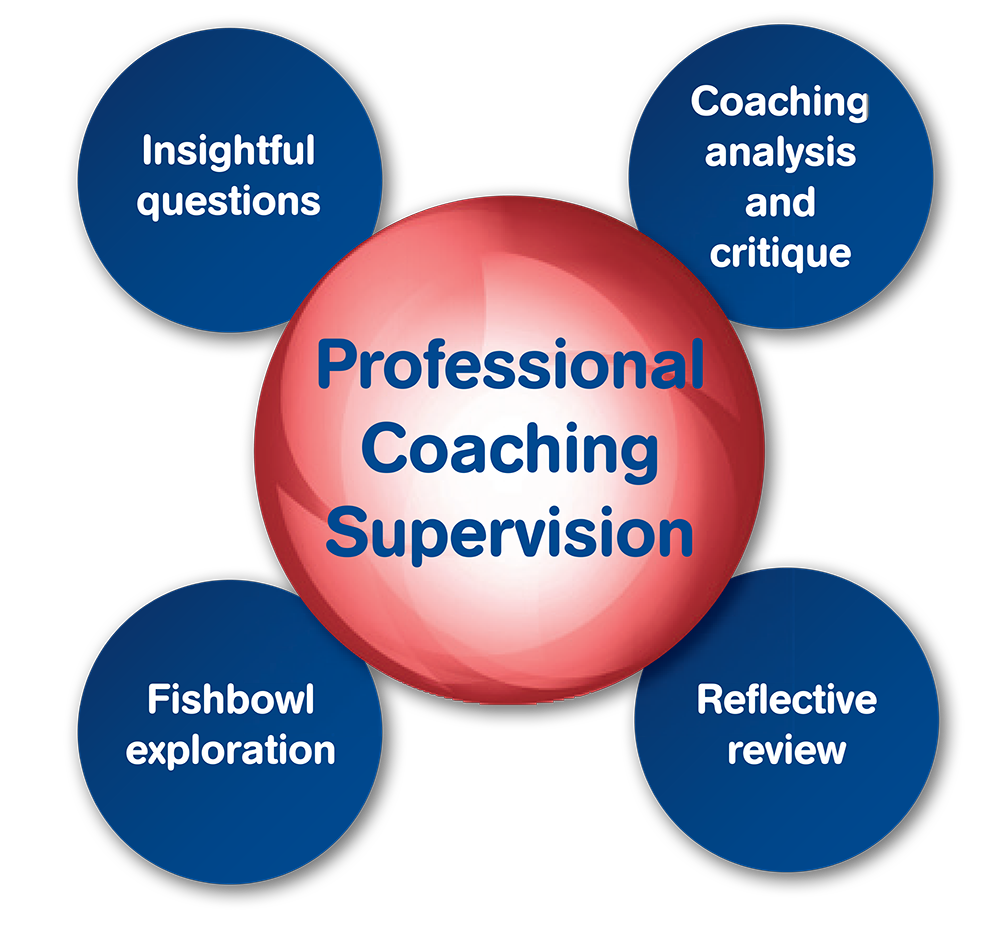Professional Coaching Supervision Programme
At MRA we believe whole-heartedly in the power and value of Professional Supervision working to, and upholding our definition:
“Professional Coaching Supervision is being fully committed to every coach’s personal and professional success and wellbeing, through high support/high challenge reflection, discussion and interaction, to ensure sustained delivery of the highest quality coaching” Matthew Radley
 As part of our commitment to driving standards in the coaching industry, and in line with our core values – ‘qualified and professional’ and ‘championing the profession’ - we offer a tailored approach to Coaching Supervision that ensures you, as a professional coach are supported in making your practice stronger. We tailor our Supervision approach to reflect the setting within which you are conducting most of your coaching be that as a coaching leader, an internal coach or as a coach external to the organisations you are working with.
As part of our commitment to driving standards in the coaching industry, and in line with our core values – ‘qualified and professional’ and ‘championing the profession’ - we offer a tailored approach to Coaching Supervision that ensures you, as a professional coach are supported in making your practice stronger. We tailor our Supervision approach to reflect the setting within which you are conducting most of your coaching be that as a coaching leader, an internal coach or as a coach external to the organisations you are working with.
What you can expect
You can expect to receive world class supervision from our highly qualified and experienced coach supervisors. All our supervisors are practicing coaches, qualified in Coaching Supervision at a minimum accredited Level 7. The experience they bring ensures that the perspectives, interventions and models they offer are relevant and easy to implement in the real world.

Our approach
We offer supervision tailored to your needs to ensure that we support you in making your practice stronger. Our supervision offers a reflective and supportive space for a coach to review their practice to ensure continual professional development. Our approach is a blended one, providing an aspect of quality control in working ethically with your clients plus models and interventions to support the continued development of your coaching skills, understanding and capabilities. In addition, we provide robust emotional support for you as a coach to enable you to explore the issues and dilemmas that you might experience in your practice.
The recommended number of supervision hours varies depending on your practice. The EMCC believes that experienced practitioners require a minimum of 4 hours individual supervision per year evenly distributed across 12 months and that the more work a coach undertakes, the more they will benefit from supervision.
Our approach at MRA means we can provide you with the necessary supervision support to enhance your practice and to meet your professional coach accreditation requirements.
1:1 supervision
The supervisor will work at a deep level with the coach attending to the coach’s personal strengths, challenges and learning style. Individual client cases will be explored in detail and the supervisor will support the coach in exploring their own limiting beliefs, repeating patterns and hot-spots, and how these can impact on their work with clients. The supervisor will also provide challenge and offer new perspectives.
Group supervision
This approach brings together qualified coaches to learn both from the supervisor and from each other. Our framework combines individual inquiry from the presentation of specific case studies by the coaches together with resource-led, reflective practice . The reflective space enables the coach to acquire a deeper understanding of what is taking place within the client system, the relationship between the coach and client and the coach themselves. Peer to peer learning is facilitated, in addition to challenge and interventions from the supervisor. We recommend a group supervision approach for organisations who have invested in their leaders through the EMCC Level 5 Coaching with Confidence qualification as it provides a reflective space for coaching leaders to review their practice, to maintain momentum and learning, and to ensure the coaching investment is maximised.
Team Coaching Supervision
We use our expertise as Team coaches and extensive experience drawn from working with Teams to provide Supervision to coaches operating in the team space. Team coaches need to appreciate the role they play within the broader system and the challenges and complexities that come from team dynamics. Our supervision approach helps you to understand how you as coach may be helping and hindering. With our Level 7 qualified team coaches and drawing from ‘The Ten Modes of Supervision’, we provide a space to share case studies, and both learn from each other and from the supervisors.
Session structure
As supervision is coach-led each session will be different depending on the nature of the inquiry brought by the supervisees. We ensure robust contracting to provide a clear and shared understanding of how we will work together, and to build trust and mutual respect. We provide space for individual inquiry and may introduce a range of supervision techniques to uncover the ‘doing’ and ‘being’ of coaching to aid understanding and growth. We also use a range of resources including recommended texts, articles for review and reflection and our Insightful Supervision Coaching cards. Each session is designed to ensure that learning for the coach is maximised, development is enabled, and space is provided for coach self-care.
Your coaching supervision journey
Insightful questions
Robust contracting, inquiry-led learning, insightful supervision questions review and exploration.
Coaching analysis critique
Robust contracting, inquiry-led learning, coaching analysis and critique using MRA video resources.
Reflective review
Robust contracting, inquiry-led learning, review and reflection of extracts from recommended text or journal articles.
Fishbowl exploration
Robust contracting, inquiry-led learning, exploration using the Fishbowl technique to learn from both your peers and the supervisor.
What can I bring to supervision?
Nothing is too small to bring to supervision. Often the development comes from the subtleties of just reflecting and sharing your coaching experiences. Supervision can help with any of the following:
- Repeating patterns
- Frustrations that you are experiencing with your clients
- Anything that you are finding challenging in your coaching practice
- Anything relating to your practice as a coach that you need to off-load
- Ethical issues or concerns about boundaries that you need clarification on
- Any areas for development
FAQs
- It provides a reflective space for coaches and generates insights for improvement
- It helps the coach to become aware of their strengths and weaknesses and enables them to become more confident across a greater range of coaching conversations
- This in turn provides both protection for the coach and helps ensure that the coach’s clients receive the best possible coaching experience
- Ensures the coach keeps up to date with professional development
- Ensures that ethical issues and boundaries are maintained
- Encourages coach accountability
- Helps assess impact / ROI of coaching by providing evidence of that return
- Helps to raise quality standards across the profession
- Coaches in supervision often refer to feeling relieved, energised and restored when they leave a supervision session
- Allows for focused reflection on the specific issues, dilemmas and opportunities that the individual coach is facing
- CPD can be tailored to the needs of the individual and the coach’s learning and coaching style
- Allows for peer to peer coaching opportunities
- Coaches share ideas and support individuals in the generation of insight and solutions to the challenges that they are facing. This sharing of expertise, opinions and experience helps to enrich the learning for everyone and helps the coach to contain and resolve some of the more challenging aspects of their work
- Helps to “normalise” the challenges that coaches face
- Introduces the coach to a broader professional coach support network
- Often a cost effective way of receiving supervision
- Introduces objectivity: provides time for the coach to reflect on their practice away from the pressure of the work environment
- Challenges “group think” mentality
- Helps to raise the quality of coach provision across the organisation
- Helps to assess the impact / ROI of coaching within the organisation by providing evidence of coach practice
*This can be offered on both a 1:1 and group basis
- Anything that you are finding challenging in your coaching practice
- Any repeating patterns
- Any frustrations that you are experiencing with your clients
- Anything relating to your practice as a coach that you need to off-load
- Any ethical issues or clarification about boundaries that you need clarification on
- Any areas for development
Remember, nothing is too small to bring to supervision. Often the development comes from the subtleties of just reflecting and sharing your coaching. The supervisor will pick up on patterns, limiting beliefs and areas for development by listening to you share your current practice, agendas or clients
- Confidence as a coach
- Repeating patterns / hot-spots for coach
- Contracting issues
- Boundaries
- Exploration of tools and techniques
- Client mobility
- Perfect world thinking
- Concerns that you are not doing enough
- Unexpected emotional material, either for the coach or client
- “Ruptures” in the coaching relationship



